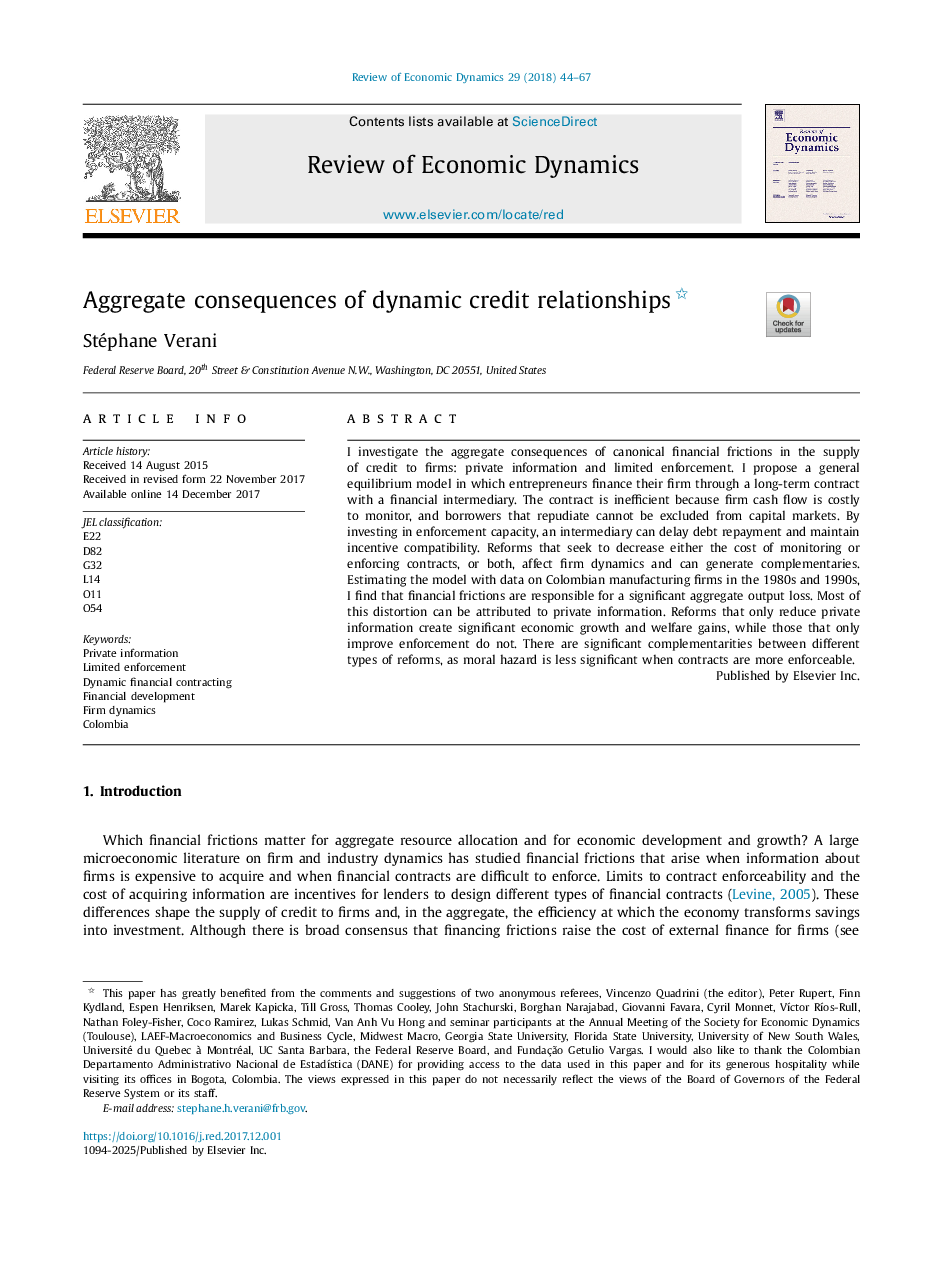| Article ID | Journal | Published Year | Pages | File Type |
|---|---|---|---|---|
| 7388129 | Review of Economic Dynamics | 2018 | 24 Pages |
Abstract
I investigate the aggregate consequences of canonical financial frictions in the supply of credit to firms: private information and limited enforcement. I propose a general equilibrium model in which entrepreneurs finance their firm through a long-term contract with a financial intermediary. The contract is inefficient because firm cash flow is costly to monitor, and borrowers that repudiate cannot be excluded from capital markets. By investing in enforcement capacity, an intermediary can delay debt repayment and maintain incentive compatibility. Reforms that seek to decrease either the cost of monitoring or enforcing contracts, or both, affect firm dynamics and can generate complementaries. Estimating the model with data on Colombian manufacturing firms in the 1980s and 1990s, I find that financial frictions are responsible for a significant aggregate output loss. Most of this distortion can be attributed to private information. Reforms that only reduce private information create significant economic growth and welfare gains, while those that only improve enforcement do not. There are significant complementarities between different types of reforms, as moral hazard is less significant when contracts are more enforceable.
Keywords
Related Topics
Social Sciences and Humanities
Economics, Econometrics and Finance
Economics and Econometrics
Authors
Stéphane Verani,
